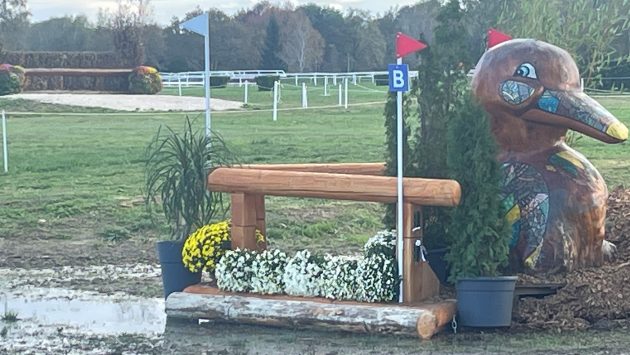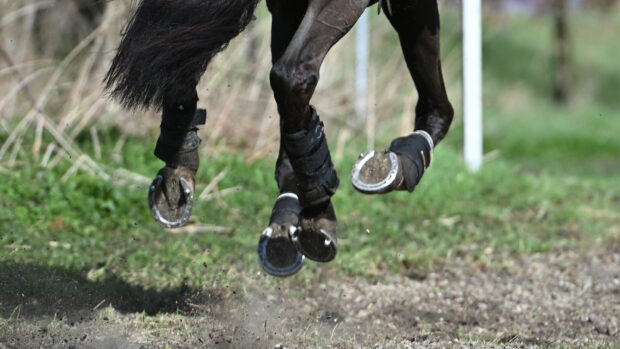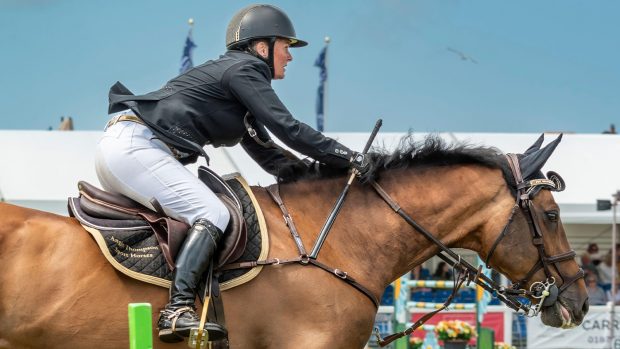Plans to scrap the ballot and a new approach to shaping eventing’s future in Britain have been met with optimism – with hope of finding positive ways forward for issues that have arisen.
Progress on the 2023 British Eventing (BE) calendar is under way, so event organisers have been sharing their thoughts mid-way through the process. But the shift from the ballot system and willingness to try a new approach were welcomed.
In summary, BE is ditching the ballot system, which will enable organisers to shift to third-party entry systems, for a “first-come, first-served” approach. It is hoped this will give more certainty (news, 27 October).
There is also a new approach to the fixture list. Higher-level events are “firmed” into the calendar, while the grassroots end has been opened up, with oversight and new restrictions around when venues can hold unaffiliated days. The intention is to make it a more open market.
Those H&H spoke to were broadly supportive of the new approach. But there are some issues to work through.
Organisers of Upton House Horse Trials shared their frustration on the event’s Facebook page at not receiving a third day after applying for it on four occasions, which garnered traction. They stated they “would not be holding any affiliated events going forward” but would be open to unaffiliated.
As H&H went to press, BE chief executive Helen West was due to speak to Upton organisers, with hopes that the situation could be resolved.
Ms West told H&H the calendar shared with organisers was a draft, not the final version, to allow time for feedback, negotiations and a further planning meeting before the final 2023 calendar is released in December.
She added that three organisers contacted BE over the weekend, with relatively easily solved issues.
‘A fine balance’
Douglas Weymouth of Cumbria Horse Trials, which organises BE and unaffiliated fixtures at Warwick Hall and Frenchfield Park, told H&H that “any streamlining of the entry system is very welcome and all attempts to rebalance the fixtures lists equally so”.
He said the ballot day had “effectively become a decision to run day”, adding that decreasing numbers of competitors were committing to entering on the day entries opened, with the majority leaving it until the last minute – and “a fair few readily paying the late fee”.
“In recent years, this behaviour was greatly facilitated under the rules with entry lists needing to be published and made visible to everyone. I now understand publishing lists will no longer be required and organisers may choose to show lists of those entered or not,” said Mr Weymouth.
“Changing to a first-come, first-served ‘blind’ entry system could work very well, but organisers still need to know competitors will come forward so the event may be organised.
“There is, therefore, a fine balance to be had otherwise the peripheral events will disappear and members in outlying areas will have less choice having paid their membership fees.
“I am a believer in incentivising customers who like to enter ‘early bird’ and yet appreciate that others will wish to enter last-minute and may well be willing to pay a much higher price for that choice. We need to tailor the price to the needs of the sport’s customers.”
Nigel Taylor, of Aston-Le-Walls, said he was “on board” with the shift to “first come, first served”.
“We have always done it with the unaffiliated horse trials and it’s worked very well. The problem [with the ballot system] has been people looking – and you can’t blame them – and seeing how many entries an event has and waiting until the very last minute,” he told H&H, adding that the knock-on impact is significant for events.
“With first come, first served, everyone knows where they are.”
He said BE has to be careful to protect the peripheral events, to avoid the sport becoming centralised, adding that there are “no easy answers” to sorting the fixtures calendar.
He also spoke of the year-round costs that come with running a permanent centre and the significant investment Aston continues to put into its facilities, which go hand-in-hand with needing to run a certain number of event days for the business to remain viable.
Aston will be switching the unaffiliated days it has previously run the day after BE fixtures to “Go BE”, and there will likely be an unaffiliated or training weekend in its calendar outside BE dates.
“BE has to do something to try and increase membership and make horse trials viable and that is the road they have gone down and we will support it,” he said.
“Competitors will go where they want to go and where they are confident in the experience an event will give.”
Tweseldown owner and organiser Rachael Faulkner welcomed the removal of the ballot.
“If we are looking at it from a membership side, where the customers are the riders, when you’re thinking about the customer service and giving them a good consumer journey into the event, I think that balloting isn’t helpful for that,” she told H&H. “And I do think if you can do first come, first served, people will be encouraged to enter early and that’s good for the event organisers.”
From her own perspective as a rider and an owner, she also sees the removal of the ballot as a “positive move forward”.
“You want to be able to plan your time,” she said.
You might also be interested in:

Subscribe to Horse & Hound magazine today – and enjoy unlimited website access all year round

British Eventing to scrap ballot system in moves to improve the sport

Calls for change after frangible device costs riders top-10 results at Pau five-star

Andrew Nicholson: championships and five-stars can be complementary to each other

Ultimate guide to British Eventing’s ballot system and ballot numbers
If you are confused by the British Eventing ballot system, let us demystify the process for you
Horse & Hound magazine, out every Thursday, is packed with all the latest news and reports, as well as interviews, specials, nostalgia, vet and training advice. Find how you can enjoy the magazine delivered to your door every week, plus options to upgrade your subscription to access our online service that brings you breaking news and reports as well as other benefits.




